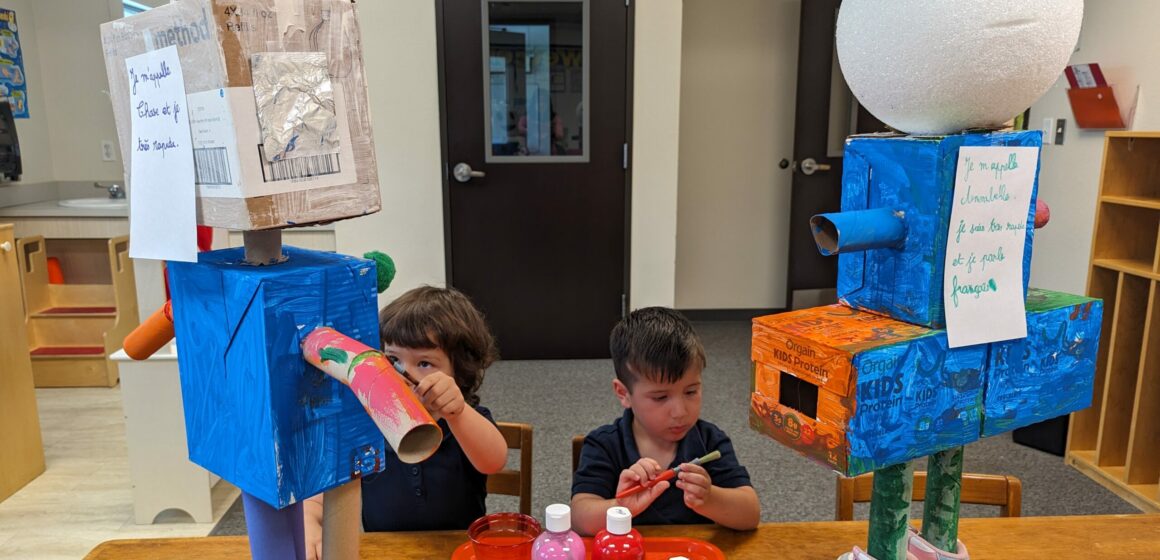Exploring Project-Based Schools: A Paradigm Shift in Education
In the realm of modern education, the traditional model of rote learning and standardized tests is gradually giving way to more dynamic and engaging approaches. One such approach gaining momentum is the concept of project-based schools. But what does it really mean to be a project-based school?
At its core, a project-based school revolves around the idea of learning through hands-on, real-world projects rather than through traditional lectures and textbooks. It emphasizes collaboration, critical thinking, problem-solving, and creativity as essential skills for students to thrive in an increasingly complex world.
Key Characteristics of Project-Based Schools
Student-Centered Learning: Unlike traditional classrooms where the teacher imparts knowledge, project-based schools empower students to take ownership of their learning. Students often choose projects based on their interests and are encouraged to explore topics deeply.
Interdisciplinary Approach: Projects often integrate knowledge and skills from multiple disciplines. For instance, a project on sustainable farming may involve aspects of biology, chemistry, environmental science, and economics, fostering a holistic understanding.
Real-World Relevance: Projects are designed to reflect real-world problems or scenarios, making learning more meaningful and applicable. This approach helps students see the direct impact of their knowledge and skills beyond the classroom.
Collaboration and Communication: Working on projects requires collaboration among peers, often in diverse teams. This fosters communication skills, teaches effective teamwork, and exposes students to different perspectives—a crucial aspect in preparing them for the workplace.
Critical Thinking and Problem-Solving: Projects inherently involve challenges and obstacles that require critical thinking and problem-solving skills. Students learn to analyze situations, develop solutions, and adapt their approaches based on feedback and outcomes.
Teacher as Facilitator: In project-based schools, teachers act more as facilitators or guides rather than lecturers. They provide support, resources, and mentorship, encouraging students to explore and discover knowledge independently.
Benefits of Project-Based Schools
Increased Engagement: By focusing on projects that align with students’ interests and passions, project-based schools significantly enhance student engagement. This active involvement in learning promotes a deeper understanding of concepts and higher retention rates.
Preparation for the Future: In a rapidly evolving world where adaptability and innovation are key, project-based schools equip students with essential skills. These skills go beyond academic knowledge and include critical soft skills sought after by employers.
Fostering Creativity: Projects often encourage creativity and innovation. Students are encouraged to think outside the box, experiment with ideas, and find unique solutions to problems, nurturing a culture of creativity within the school.
Personalized Learning: Each project allows students to progress at their own pace and delve into areas of personal interest. This personalized approach to learning accommodates diverse learning styles and strengths, fostering a more inclusive educational environment.
Challenges and Considerations
While project-based learning offers numerous benefits, it also presents challenges. These may include logistical issues in planning and executing projects, varying levels of student motivation, and ensuring that learning outcomes align with academic standards.
Additionally, implementing project-based learning requires a shift in mindset and teaching methodologies among educators. Professional development and support are essential to ensure teachers are well-equipped to facilitate effective project-based learning experiences.
Embracing a project-based approach represents a significant shift towards creating more dynamic, engaging, and relevant learning experiences for students. By focusing on real-world applications, fostering collaboration, and nurturing critical skills, project-based schools are preparing students not just for academic success but for future challenges in an increasingly interconnected global society. As more educators and schools adopt this approach, the landscape of education continues to evolve, promising a brighter future for generations to come.
